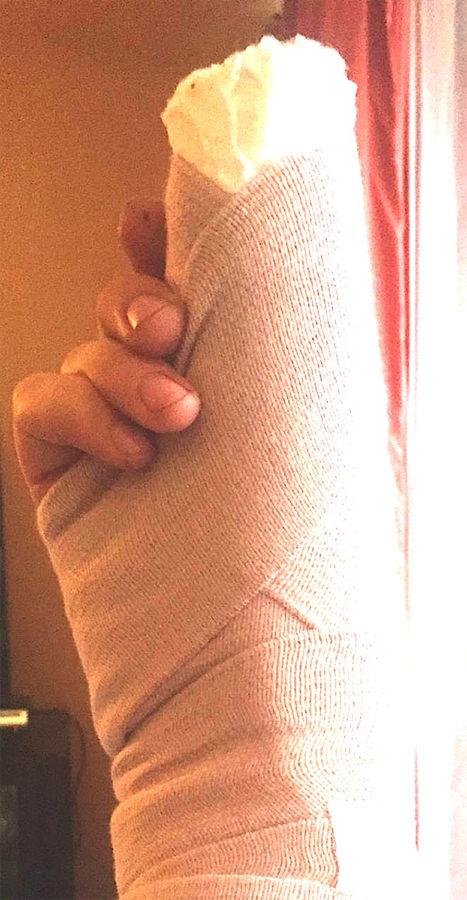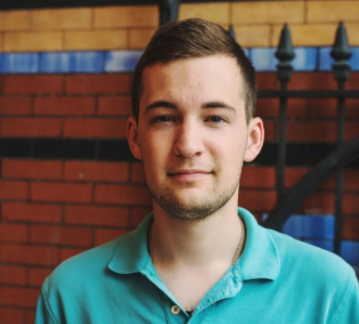Crunch.
I knew immediately my thumb was — at best — broken. Barely a week before the start of spring semester, the first digit on my writing hand was crushed between a heavy wooden board and the bottom of the banister around the decking I was working on. As the board tumbled to the ground below, my stomach leapt into my throat.
When I took my thin glove off, the wound I was staring down at was even worse. The top of my thumb was completely amputated. For what seemed like an eternity, I waited in an urgent care facility, then a hospital waiting room, before finally going under the knife to [sort of] reattachit.

I spent the rest of the week restlessly watching TV on my parents couch and unhappily anticipating my return to the classroom. Kept in a cast around the clock, my injured thumb made it hard enough for me to pull a shirt over my head, nevermind unpacking my backpack or taking notes.
On the first day of the semester, I made a beeline to the university’s Office of Disability Services. Their office, tucked in the back of the seventh floor of 73 Tremont, was no strange place to me. Since freshman year, they have helped me work with professors to make accommodations to make it easier to take notes with a computer and take extra time on exams if I need it.
This semester, though, they’d be rearranging my accommodation letter on short notice. With my right hand growing stiff from being stuck in a cast, I wouldn’t even get full use of it back until after I got it off.
As usual, I sat down with Andrew Cioffi, the assistant director of the Office of Disability Services. Cioffi helped me draft a letter to my professors explaining my injury, and several accommodations I would need to be able to participate in my classes. After we came up with a plan and he contacted my professors, most of them got back to me within a few days, and were sympathetic to my situation.
I spent the first month of the semester commuting from home in Cambridge, rather than my apartment in East Boston. While the MBTA and the unforgiving weather did their best to make my commute miserable, my professors did what they could to make sure I kept pace in class.
“You’ve had me before. Whatever you need, you let me know,” John McCoy, my business law professor told me.
“If you need notes, I have some transcribed that I can send to you while you can’t write,” Alison Kelly, my statistics professor offered. In my other classes, my peers offered to share their notes with me. Try as I might, I just couldn’t become a lefty after five miserable days of trying.
Luckily for me, my doctor overestimated the length of time my recovery time. After a few weeks, I was able to remove my cast during class, and then ditch it completely. Though my thumb initially refused to cooperate to operate a pencil, before I knew it I could copy down the formulas in my statistics class without issue. Writing and editing stories for the paper got easier as the semester wore on.
The importance of the help I got from the Office of Disability Services and my professors cannot be understated. Without the solid plan I drafted at the start of the semester, I probably would have fallen behind and would now be racing to catch up.
Any student who thinks they might need help would do themself a favor by reaching out to the Office of Disability Services — even if they do not know what kind of help they need. The university has systems in place to help us, all we have to do is reach out and ask.








